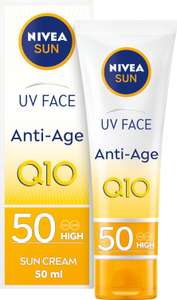

Sun Cream Deals & Offers
11 active deals10,332 commentsAll Sun Cream discounts and offers overview - April 2024

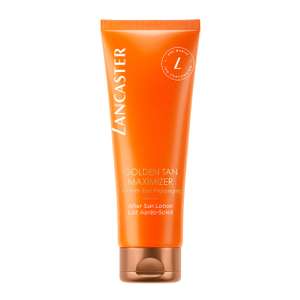
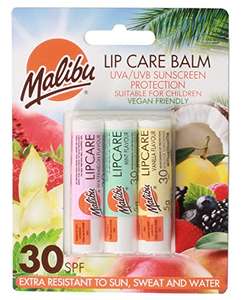
Sun Cream price comparisonPowered by
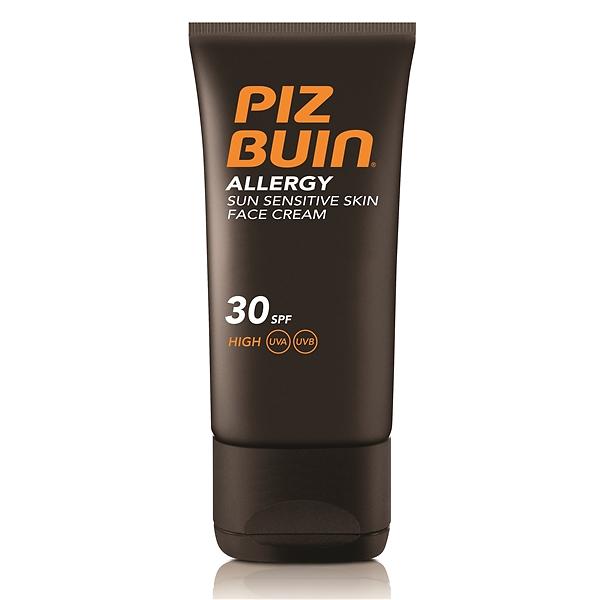 2 offers
2 offers
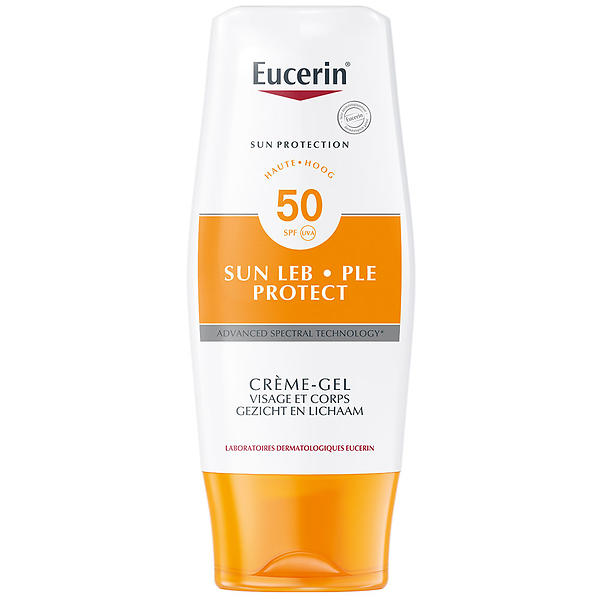 15 offers
15 offers
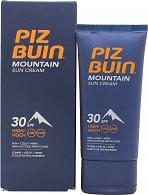 1 offer
1 offer
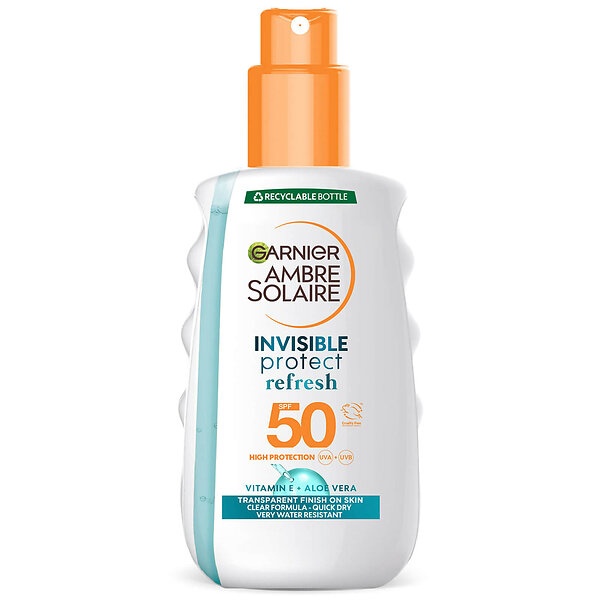 3 offers
3 offers
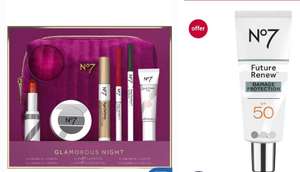

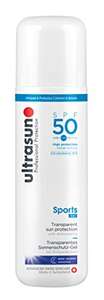
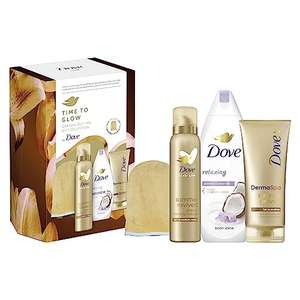
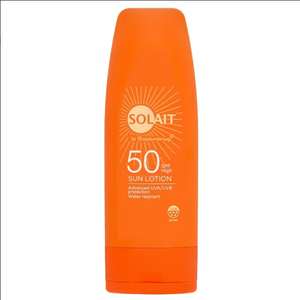
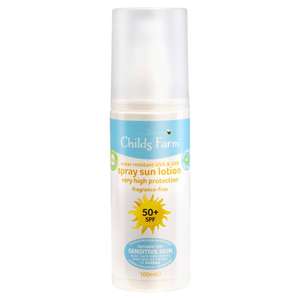
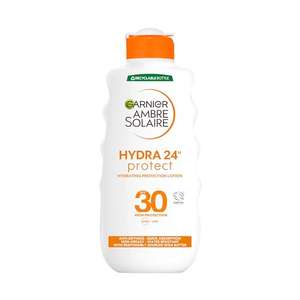
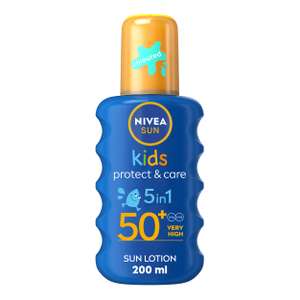
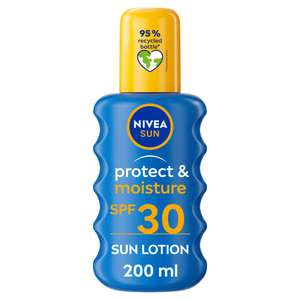
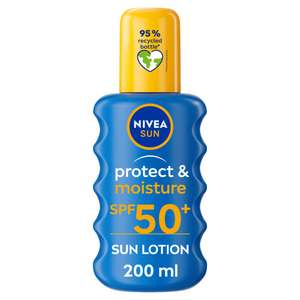
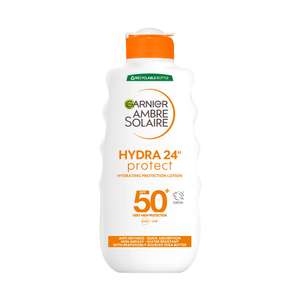
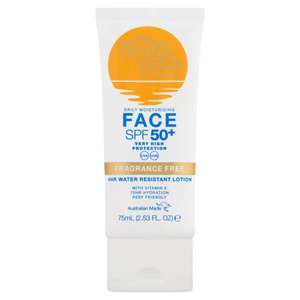
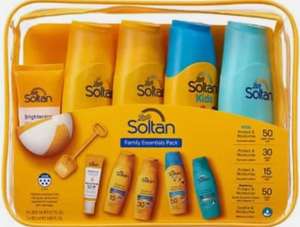
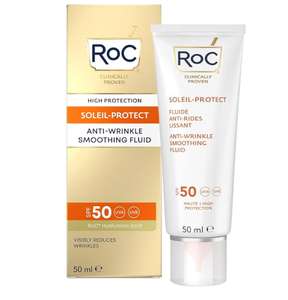
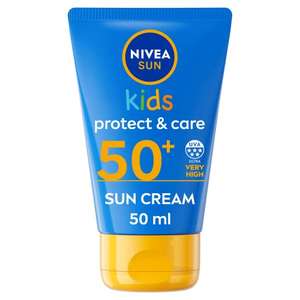
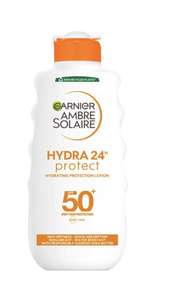
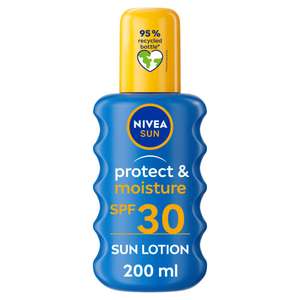
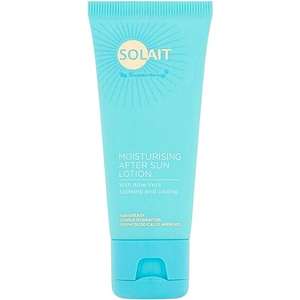
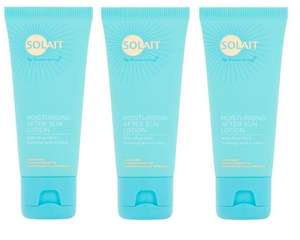
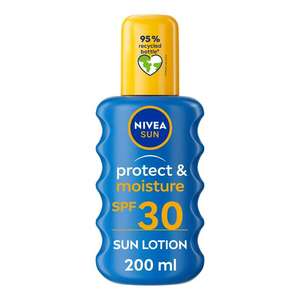
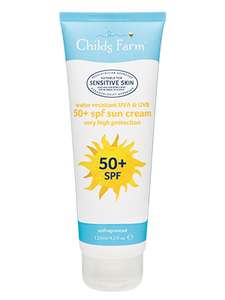
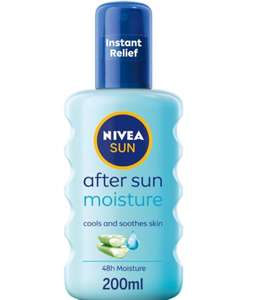
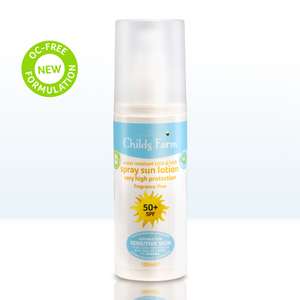
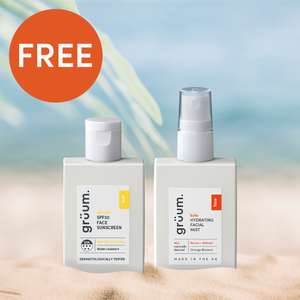
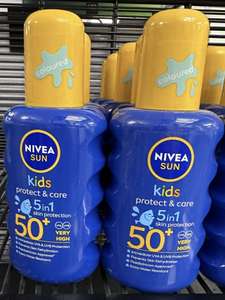
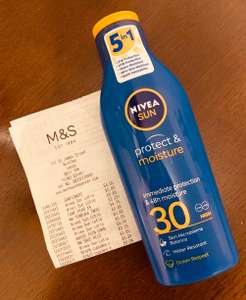
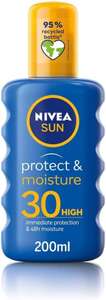
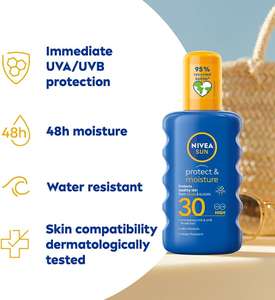
The Best Sun Cream Offers From hotukdeals
When temperatures rise and the sun burns down, protecting your skin is absolutely essential. Nowadays, we know the risks posed by UV exposure and sunburn, so it makes sense to have a stash of high-quality sun cream to slap on when the need arises.
Buyers will find plenty of options at hotukdeals, from cut-price Nivea sun cream offers and suncream deals, to specialist baby sun cream formulations. But which option is right for you, and how can you track down the lowest prices? This hotukdeals buyer's guide will explain the available options, and help all sun lovers find the protection they need.

A Short History of Sun Cream
Humans have been trying to protect their skin against the sun for thousands of years. Back in Ancient Greece, it was common to apply olive oil to the skin, providing an extra layer of protection, while Egyptian apothecaries prescribed aromatic jasmine lotions for the same purpose.
However, modern sun creams are very different (even if some of the ingredients used by ancient peoples are making a come back). The story of modern sun creams probably starts in the 1930s when German chemist Franz Greiter created “Gletscher Crème” (which later became Piz Buin), and French giant l'Oreal produced its first Ambre Solaire sunscreens. Greiter and l'Oreal were closely followed in 1944, when American scientist Benjamin Green created a version specifically designed for American troops in the Pacific Theatre.
These early formulations offered relatively low levels of sun protection (SPF), but were swiftly developed after World War Two. For instance, Green's creation was bought and refined by the Coppertone company, whose bronze coloured creams became a staple in the 1950s.
The 1960s saw further developments, including the routine use of SPF as a measurement of sun protection. Now, products from across the world could be compared using a scientific measurement – a big help for medical professionals and everyday users.
In the 1970s, a big step forward took place when waterproof sun creams hit the market, making sun-soaked beach holidays much safer. Sophisticated UV blockers also emerged, cancelling out the sun's potentially harmful rays.
Since then, innovations haven't been dramatic, but changes have appeared continuously. For instance, the past decade has seen an explosion in “natural” sun creams, featuring ingredients like coconut oils, while UV filtering products have become more effective, and more diverse. Now, customers can pick from hundreds of styles, strengths, and brands, so let's try to make the buying process more straightforward
How Does Sun Cream Work?
The vast majority of sun creams work in the same way. They will generally be composed of two elements: inorganic and organic chemicals (although totally “organic” products are now becoming mainstream). In these formulations, inorganic chemicals play the role of reflecting UV rays away from the body. Organic chemicals absorb UV, which is then radiated away from the skin as heat. In combination, the two ingredients stop UV (and sheer heat) reaching the skin, minimising the risk of skin cancer and burns.
Inorganic ingredients tend to include compounds like zinc oxide or titanium dioxide, both of which have been used in sun creams for generations. These compounds are responsible for the white colour of some creams, a problem that researchers have worked around by reducing the size of inorganic particles in their formulations. Stronger face, hand and other creams may still be visible, but many formulations appear invisible on the skin, even though they provide total protection.

What Does SPF Mean?
When choosing sun creams, you'll come across the acronym “SPF” a lot, and with good reason. Developed by Franz Greiter in the 1960s, SPF stands for “Sun Protection Factor”, and it's the basic measurement used to compare the strength of sun protection products.
SPF is measured on a scale from 1 to over 50, with strength rising as the number grows. Every “factor” is measured relative to how long it takes for skin to burn when no protection is applied. So, a product with SPF 40 will delay burning and UV damage by a factor of 40 compared to situations where no cream is applied.
SPF is a good guide to sun cream strength, but it's not infallible. Most experts advise that users remain cautious and conservative when applying protection. Just because a cream is labelled as SPF 50 doesn't mean you can apply it once and forget about it. Reapplication will be needed in all cases.
What Do UVA and UVB Mean?
Not all sun creams provide precisely the same kind of protection. For example, there are two different kinds of UV rays, and products will differ according to how well they block them:
UVA – UVA rays penetrate deep underneath the skin's outer layer, causing long term damage to tissues. This type of radiation is what causes premature ageing in some people who are exposed to the sun over long periods, and can cause blemishes as well, while it also carries a heightened risk of some types of cancer.
UVB – UVB rays work close to the skin, and are the primary cause of sunburn. Again, this type of UV radiation is associated with increased cancer risk, and is the form that most sun creams will be equipped to neutralise.
Different Types of Suncreams
Beyond this distinction, you'll find plenty of different variations when looking for cheap sun cream at hotukdeals. For instance, our listings could include:
Broad Spectrum Sun Creams – These creams are the most advanced around, and include protection against both UVA and UVB rays. If you are intending to spend long periods exposed to sunshine in warm climates (such as outdoor work), they will be the only option to consider.
UVA Protecting Creams – Relatively few sun creams explicitly advertise themselves as UVA specialists, but they can be found. These creams tend to include organic compounds like oxybenzone or avobenzone. Check labels and ingredients lists to see whether they are present. If they are, they should provide excellent deep skincare and skin protection. Some products also feature “UVA” in a circle, a sure sign that their deep protection is up to the mark.
Water Resistant Creams – There are also specific sun creams for people who are regularly exposed to water or sweat. These creams aren't thoroughly water-resistant. Their effects will wear off after 40-60 minutes in the water. But they are much, much better at protecting your skin when moisture is present. Many generic brands will lose their protective qualities very quickly when wet, which is something to be aware of.
Sensitive Skin Creams – Some skin conditions like eczema can complicate the application of sun creams, which may cause allergic reactions. In these cases, it's advisable to choose a sun cream for sensitive skin. A variety of options exist, but it's best to be guided towards the right brand and product by medical advice.
Once-a-Day Creams – The most “convenient” type of sun cream, once a day formulations are designed to be applied once, and then left to provide protection all day long. They won't usually be the strongest on the market (so check SPFs before buying), but they can be excellent for undemanding environments and low levels of skin exposure.
Insect Repellent Creams – These innovative formulations double up as mosquito and gnat repellents in climates where insects are a problem. DEET is often used as the active ingredient, which definitely has the right effects regarding insects. However, DEET can dent the efficacy of UV protection, so regular applications may be needed.
Facial Protection Creams – If you are only going to leave your head exposed to the sun, it might be worth investing in specialist sun cream for face application. These creams are designed to avoid inflaming sensitive skin and have low grease levels. They may also include minerals and other ingredients intended to moisturise and oppose the ageing effects of sun exposure. But these deluxe variants often come with a hefty price tag, so always consult the suntan lotion offers at hotukdeals if you want to find the best brands for less.

How to Use Sun Cream Safely
Those are the most common general categories of sun cream on the UK market, providing solutions for various situations and requirements. However, they all have one important thing in common: if you use them improperly, they won't provide much sun protection at all. So what do you need to keep in mind when applying sun creams and lotions?
Firstly, never assume that your cream provides continuous protection. Even once a day formulations will probably require extra applications within an hour or two, especially if the wearer has taken a dip in the sea or the hotelpool. As a rule, apply more cream than you feel necessary, and do so as regularly as possible.
Always ensure that you cover all parts of the body that are exposed to the sun. It may be inconvenient to apply cream to your shoulders and back, but all parts of the body can be susceptible to burning and UV damage.
Timing your sun cream application is also crucial. Sun cream won't work immediately (at least not at 100% efficiency). Instead, it's a good idea to apply creams at least 30 minutes before entering direct sunlight.
Finally, sun cream isn't a total UV protection solution, so don't rely solely on creams to guard against burns or skin cancer. Always have sun hats and extra layers close by, and take the opportunity to rest in the shade if you get the chance. Always avoid long periods of sun exposure and – whatever you do – don't fall asleep in direct sunlight. That's a huge no-no.
What Are the Best Sun Cream Brands?
With all of that in mind, it's time to choose the right sun cream brand. We introduced a few major names in the brief history section (such as Piz Buin and Ambre Solaire), and those names remain on the scene. But the sun cream market is pretty hectic, and there are plenty of labels vying for attention. Here are some of the most reliable companies to look for when finding a sun cream sale at hotukdeals:
P20 – P20 suncream is manufactured by Riemann, and is famous for its “once a day” formulations. The company claims that P20 products function well for 10 hours after application, are classed as “very water resistant”, easy to apply, non-greasy, and packed with natural ingredients. It's definitely a high-quality brand, but as usual be wary of once a day applications. You'll probably need to re-apply P20 every couple of hours to be sure of complete protection.
Ambre Solaire – Now manufactured by Garnier, Ambre Solaire remains a major player in the sun cream market. Useful products include the brand's UV Water Clear protection mists, which are handy for short periods in the sun. Those headed to the slopes can benefit from specialist skiing sun creams, while Resisto is a great option for kids.
Nivea – Another huge sun cream brand, Nivea's “Protect and Moisturise” or “Protect and Care” lines are a common sight in beach bags across Europe. SPF levels range widely within both collections, with some ultra-strong SPF 50 formulations, and Nivea also offers some very reliable products for sensitive skin. The company's Face Moisture Mousse is also one of the best products for facial protection – offering excellent moisturising properties and robust sun protection.
Piz Buin – One of the pioneering sun cream brands, Piz Buin is another common product in vacation luggage across the world. “Protect and Cool” creams offer a refreshing coolness that other sun cream brands lack, while the core Piz Buin sun cream collection ranges across all SPF levels, and does a very solid job. Options also include mists, face creams, oils, and lipsticks – so you can easily build a portfolio of sun personal care products for the coming season.
Clarins – Slightly up the price scale, Clarins offers a collection of beauty and sun care products that are a joy to apply, leave very few white residues, work well underneath makeup, and deliver “anti-ageing” features as well. Formulations like the firm's Sun Wrinkle Control Cream aren't cheap, but aren't too expensive, either, especially when you shop at hotukdeals.
Take Care Out There with NIVEA Sun - Sun Cream UV Reveal

What's the Difference Between Sun Cream and Sun Lotions?
Sometimes, you will see creams and lotions advertised together, and brands like Piz Buin offer both styles of product (along with “mists” and “mousses”). And the differences can be significant where sun protection is concerned.
As a rule, products advertised as sun creams will offer enhanced UV protection for extended periods. They will take a bit longer to apply, but will be much more effective in preventing burns and providing long term skin protection.
Lotions may incorporate SPF and skin protection, but might not. Many are designed to provide minimal burn protection, while accelerating the skin's natural tanning processes. They can be great for short bursts on sunbeds by the pool, but aren't ideal for long days out at the beach. As usual, check the SPF rating to make sure that any skin products you use deliver the protection required.
Does Suncream Go Off?
Sun cream is just like any product containing chemicals or organic ingredients: it has an expiry date and there's the risk of creams going “off.” All products will have an expiry date somewhere on the packaging, and many will tell customers how long they should use the cream for after the container has been opened (exposure to air can dent the efficiency of some products).
Generally speaking, sun creams will retain their protective powers for 2-3 years (in the opinion of the NHS), so use that as a yardstick, and replace any creams if you can't remember when you purchased them.
Additionally, sun cream can be damaged very quickly when it is exposed to direct sunlight, whether or not the expiry date has lapsed. So if you suspect that your container spent too long on the windowsill during the latest heatwave, head to the hotukdeals sun cream listings and purchase a replacement.
Are There Special Sun Creams for Babies and Infants?
Yes, there are plenty of specialist creams for younger sun-seekers. As we noted earlier when running through the key sun cream brands, Ambre Solaire produces a baby suncream line called “Resisto”, which has a great reputation, but it's far from the only option.
Leading choices for infants include Neutrogena's Pure and Free collection, Aveeno Baby protection, and COOLA's sunscreen sticks. Using a cream like Pure and Free along with a stick makes a handy combination for parents when keeping youngsters safe by the seaside.
As kids get older, normal sun creams could come into their own. But look for creams that have high SPF and are easy to apply. Getting children to stay still as cream is applied can be a real challenge, so speedy application is a huge bonus. Sunsense, Calpyso, and Ladival are all good brands to look at when picking the perfect sun protection.

How and When to Find the Best Sun Cream Deals
Before you jet off to the Algarve or experience some Caribbean sunshine, make sure you are kitted out with the best sun protection around. As we've seen, there are plenty of options when it comes to sun cream, and the best products come with a price tag that matches their protective qualities. So how can you cut the cost of safe sunbathing without burning through your holiday spending money?
Firstly, choose your sun creams wisely. Don't waste money on inferior products that will run out in a week or offer low-quality protection. Spending a bit more on better lotions, mists, and creams can actually save money in the long term, as you'll require less to have the same effect.
Secondly, hunt for deals intelligently via hotukdeals Our sun cream listings feature leading brands like Clarins, Piz Buin, Ambre Solaire, Nivea, P20, and many other big names. Buyers can easily browse through sun cream deals from merchants like Superdrug, Boots, Sainsbury's, Lloyds Pharmacy, Tesco, and a range of online sellers.
Whatever you do, don't pay full price at your local high street stores. With discount code promotions and money off coupons, you can enjoy the sunshine for less. And if you have the chance, look out for seasonal sales. Many retailers schedule spring and autumn “escape to the sun” deals or offers to coincide with the school summer holidays. When they do, the hotukdeals sun cream listings will provide everything buyers need to know.
Stay Safe and Cut Your Holiday Costs with the Suncream Deals at hotukdeals
Whenever you hit the beach or spend a day labouring in the garden under a blazing hot sun, protecting your skin is absolutely essential. More often than not, this means applying a reliable, protective sun cream on a regular basis, ensuring that sunburn and other conditions don't ruin your summer enjoyment. To find the best protection at the lowest prices, take a look at the hotukdeals sun cream listings.
